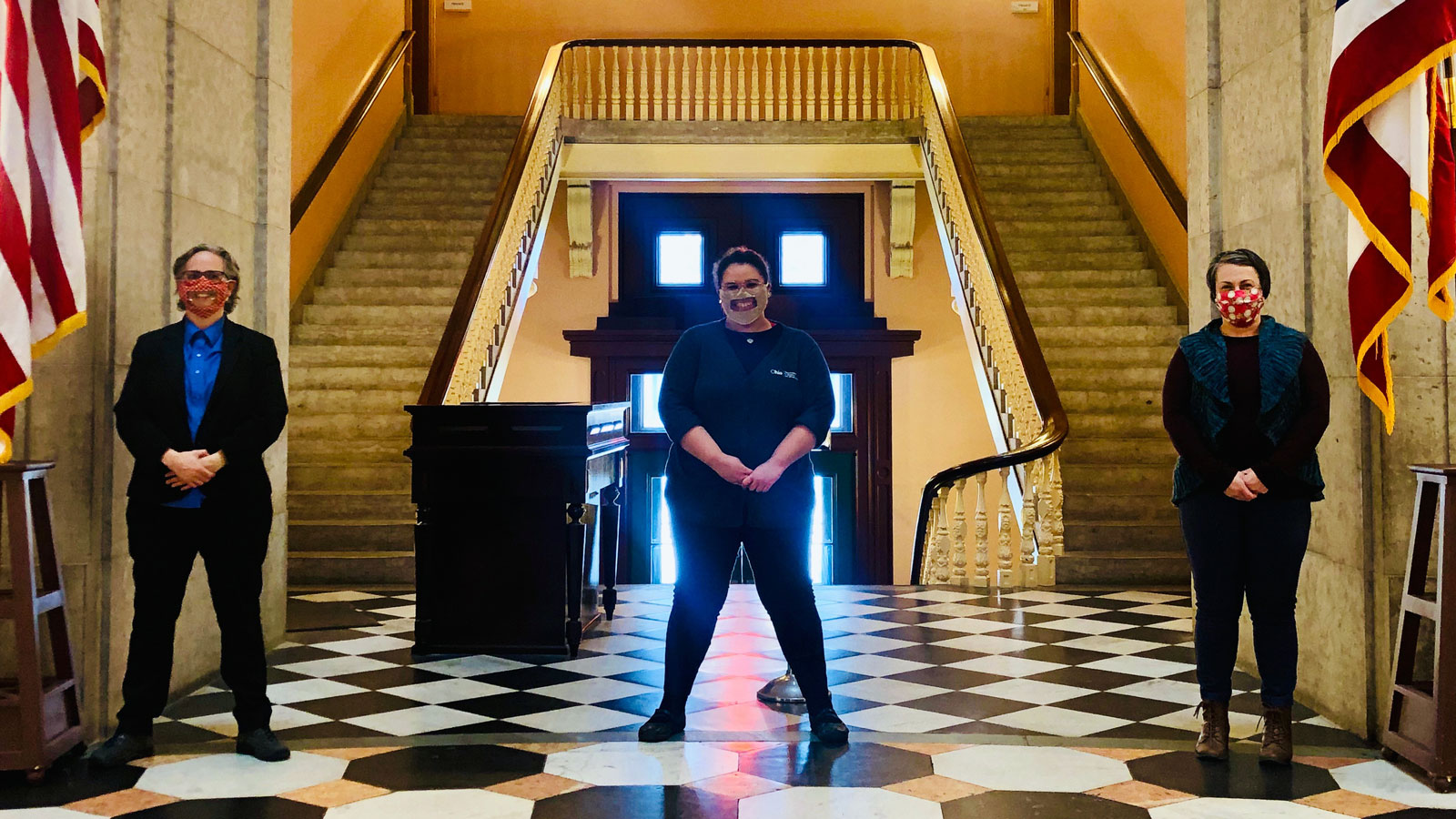Lena Smith and Christy Horne
#CStateChampions | Monday, June 15, 2020
Two Columbus State grads are leading voices in the fight against the coronavirus - even if you never hear them.
Two of the three American Sign Language interpreters at Gov. Mike Dewine's press conferences are graduates of Columbus State's Interpreter Education Program: Lena Smith and Christy Horne. The trio of interpreters became minor social media sensations early in the pandemic for their professional and emotive interpretation (the third interpreter, Marla Berkowitz, was even immortalized as a bobblehead).
The governor held daily press conferences when the pandemic first hit, which Horne says was "pretty intense." The three switch off duties, but Horne usually relays signs to Berkowitz while Smith monitors the translation and checks numbers on a whiteboard. Smith often translates for media questions.

"It's been helpful to have this consistent team, so we can work together and learn each other's strengths, Horne says. "I can't say enough about the governor's team for being so responsive and showing such respect for the deaf community."
When there's not a pandemic on, Horne works as an interpreter for Deaf Services Center in Worthington. She interprets at doctors' appointments, conferences, business meetings, tech support - anything that needs communication.
Smith works for Opportunities for Ohioans with Disabilities, a state agency that helps people with disabilities find jobs.
"I'm giving access to communication, and that's one of the highest forms of service. We put ourselves aside, and we let them talk through us," Smith says.
Smith says she started learning ASL in high school, and started ASL classes when she came to Columbus State. She found herself spending more and more time in the interpreting lab, and gained the confidence to turn it into a career.
The governor's press conferences have made sign language interpreters more visible, Horne says. Too often, people think the interpreter is just someone's friend who happens to know sign language, but more people are seeing them as trained professionals.
Smith adds: "Hopefully, the kids at home are saying 'I want to be an interpreter when I grow up.'"
Graduates at the Forefront